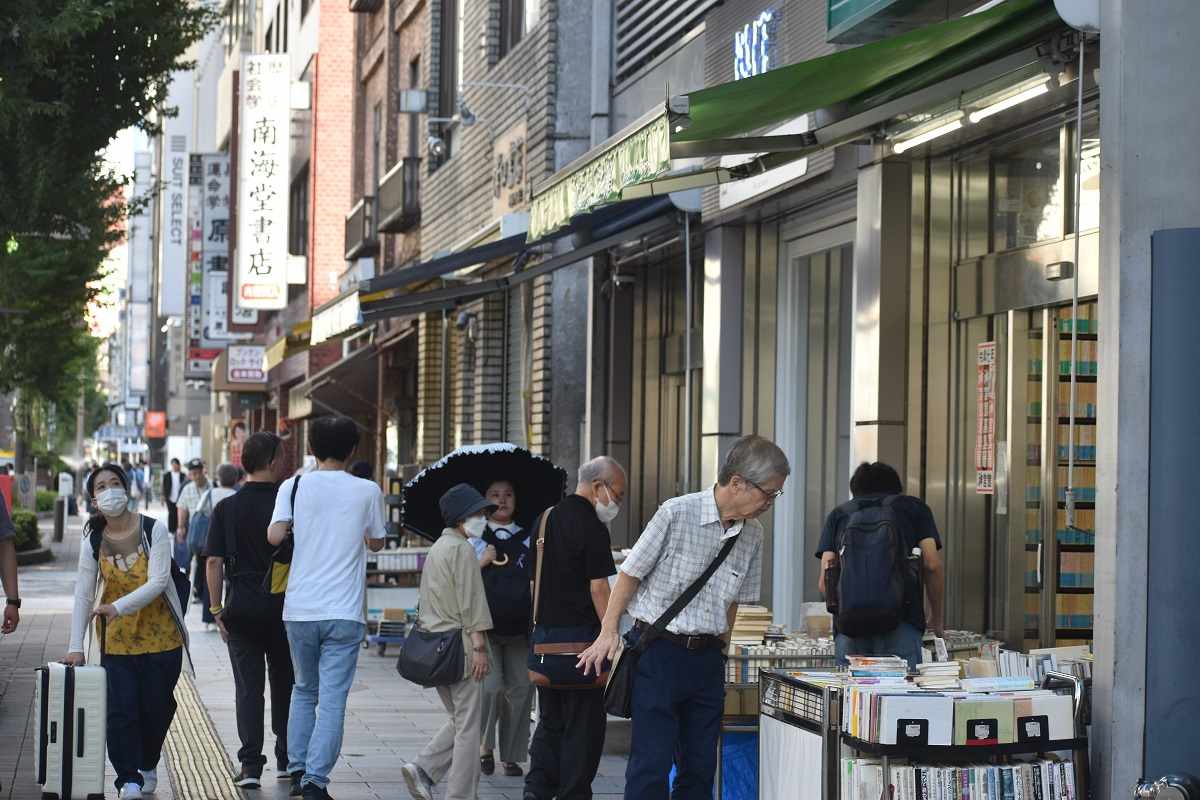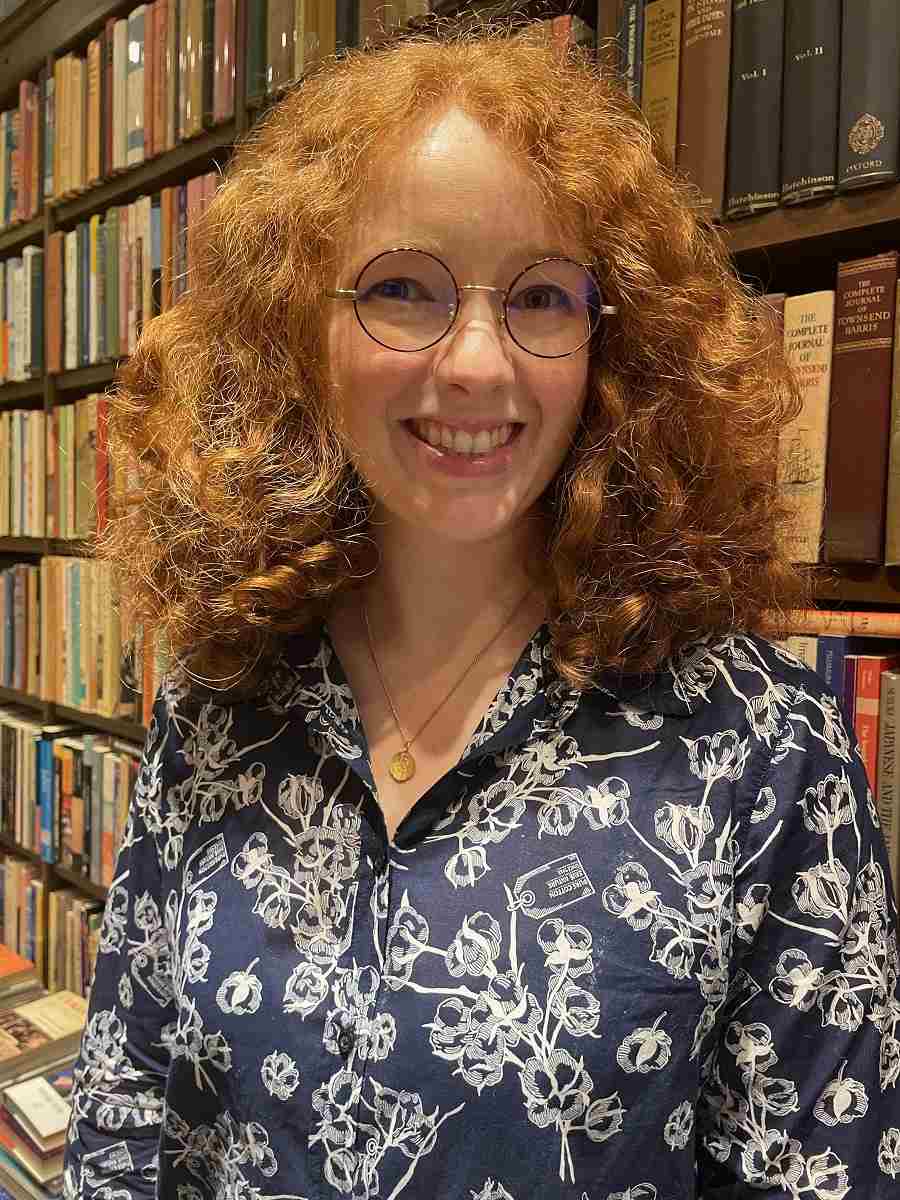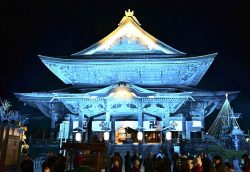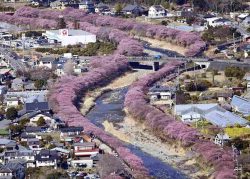Experts Explain Tokyo’s Famous Jimbocho Book Town; Lecture Series, Walking Tours Celebrate Print Culture

Bookstores line the street in the Jimbocho area in Chiyoda Ward, Tokyo.
16:44 JST, October 8, 2024
About a kilometer north of the Imperial Palace lies a district called Jimbocho, home to what is said to be one of the world’s largest concentrations of used bookstores. More than 100 bookstores, many of them specializing in various genres, are crowded together along bustling Yasukuni-dori avenue in Chiyoda Ward, Tokyo.
From October to December, three experts will take turns giving seminars under the theme of “What Kind of Town is Jimbocho? A Story of Antiquarian Books and Publishing” at Kudan-Kaikan Terrace in the ward, explaining the town’s history as well as the publishing and bookstore industries.
Susan Taylor, who has a PhD in anthropology from Harvard University, will deliver the first lecture in the series from 6:30 p.m. on Oct. 10, speaking about why so many bookstores in Jimbocho have remained in business for over 100 years.

Susan Taylor
“The textual history of Japan can be seen in Jimbocho, and objects that show the textual history of much of the rest of the world too,” Taylor, who has conducted ethnographic fieldwork in Jimbocho, told The Japan News in an email interview.
Taylor, from Tennessee, first encountered the book town while she was studying abroad in Tokyo when a classmate’s friend showed her around. Later she visited Jimbocho again to buy books to take back home.
“I remember getting lost among the bookshelves, and I was captivated by this maze that blended city space with the space of books,” she recalled.
Many bookstores have materials that play a major role in the course of history, she argues, but the world today has largely given up on the culture of bookstores and printed books resulting in book towns like Jimbocho disappearing from big cities. Amid such circumstance, she found it interesting to explore the social factors that have made Jimbocho endure.
Taylor will also give a presentation on Nov. 28 about how old book exchange events help us understand the marketplace.
On Oct. 26 and Dec. 19, Masaki Kobayashi, editor-in-chief of “Modern Publishing Studies,” will explore the history of how Jimbocho transformed into a bookstore district through maps and photographs.
On Nov. 15 and Dec. 14, Gunma Women’s University Associate Prof. Chikahiko Suzuki will talk about the mechanisms and history of the publishing industry from the perspective of Jimbocho.
The seminars are all free, but registration is required at “jimbocho-publishing-seminar.peatix.com” .
All the seminars are available in several languages supported by Toppan Inc.’s multilingual automatic translation technology.
Separately, nighttime walking tours titled “Night Walk in Jimbocho: Books, Bites, and Multi-Language Fun” will be organized on Nov. 16 and 21 and Dec. 5 from 6 p.m. starting from Shogakukan Building in the ward.
Participants visit bookstores and stroll through the alleys lined with eateries and restaurants with a guide to learn about the district, which is also a popular destination for gourmet food. The event is free. For more details, visit the English website “Night Walk in Jimbocho: Books, Bites, and Multi-Language Fun” .
Related Tags
Top Articles in Features
-

Tokyo’s New Record-Breaking Fountain Named ‘Tokyo Aqua Symphony’
-

Sapporo Snow Festival Opens with 210 Snow and Ice Sculptures at 3 Venues in Hokkaido, Features Huge Dogu
-

Tourists Flock to Ice Dome Lodge at Resort in Hokkaido, Japan; Facility Invites Visitors to Sleep on Beds Made of Ice
-

High-Hydration Bread on the Rise, Seeing Increase in Specialty Shops, Recipe Searches
-

Heirs to Kyoto Talent: Craftsman Works to Keep Tradition of ‘Kinran’ Brocade Alive Through Initiatives, New Creations
JN ACCESS RANKING
-

Japan PM Takaichi’s Cabinet Resigns en Masse
-

Japan Institute to Use Domestic Commercial Optical Lattice Clock to Set Japan Standard Time
-

Israeli Ambassador to Japan Speaks about Japan’s Role in the Reconstruction of Gaza
-

Man Infected with Measles Reportedly Dined at Restaurant in Tokyo Station
-

Videos Plagiarized, Reposted with False Subtitles Claiming ‘Ryukyu Belongs to China’; Anti-China False Information Also Posted in Japan























